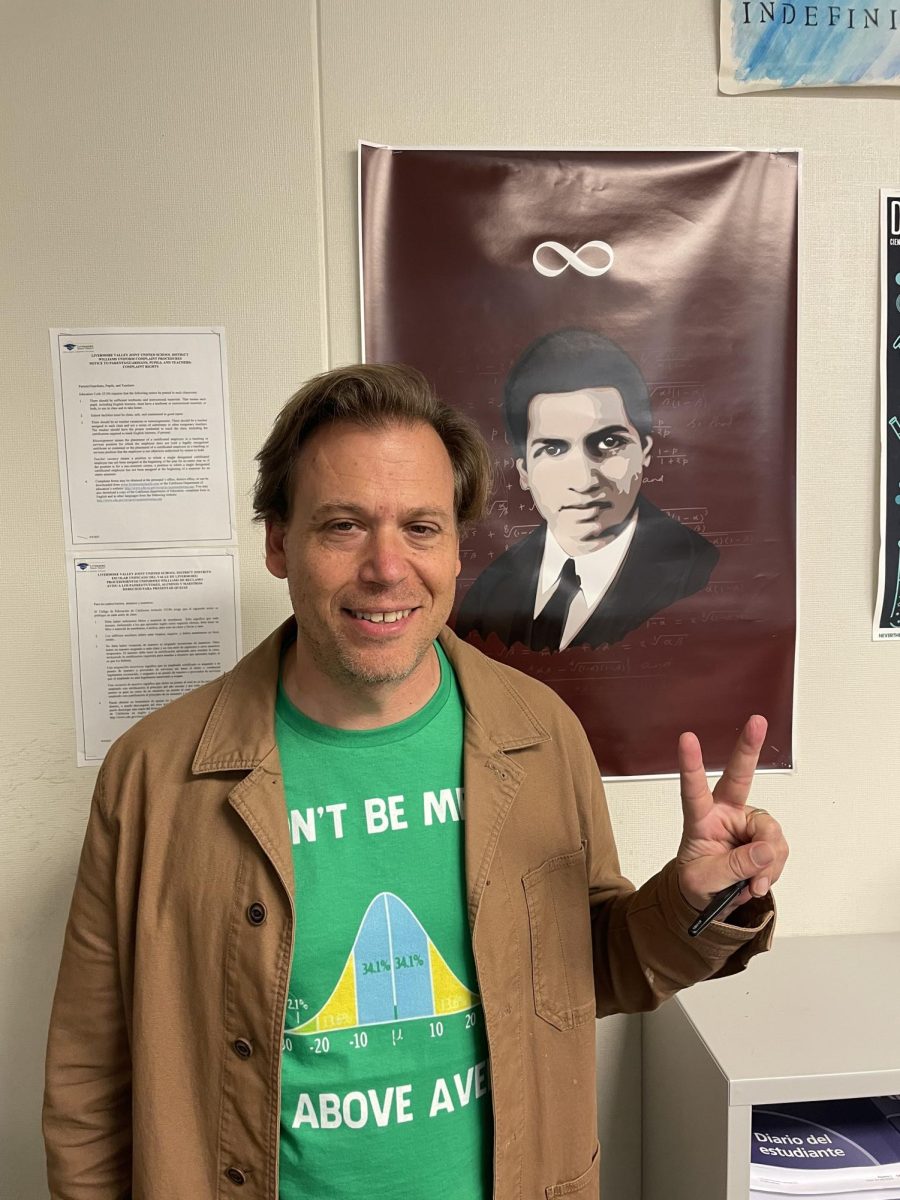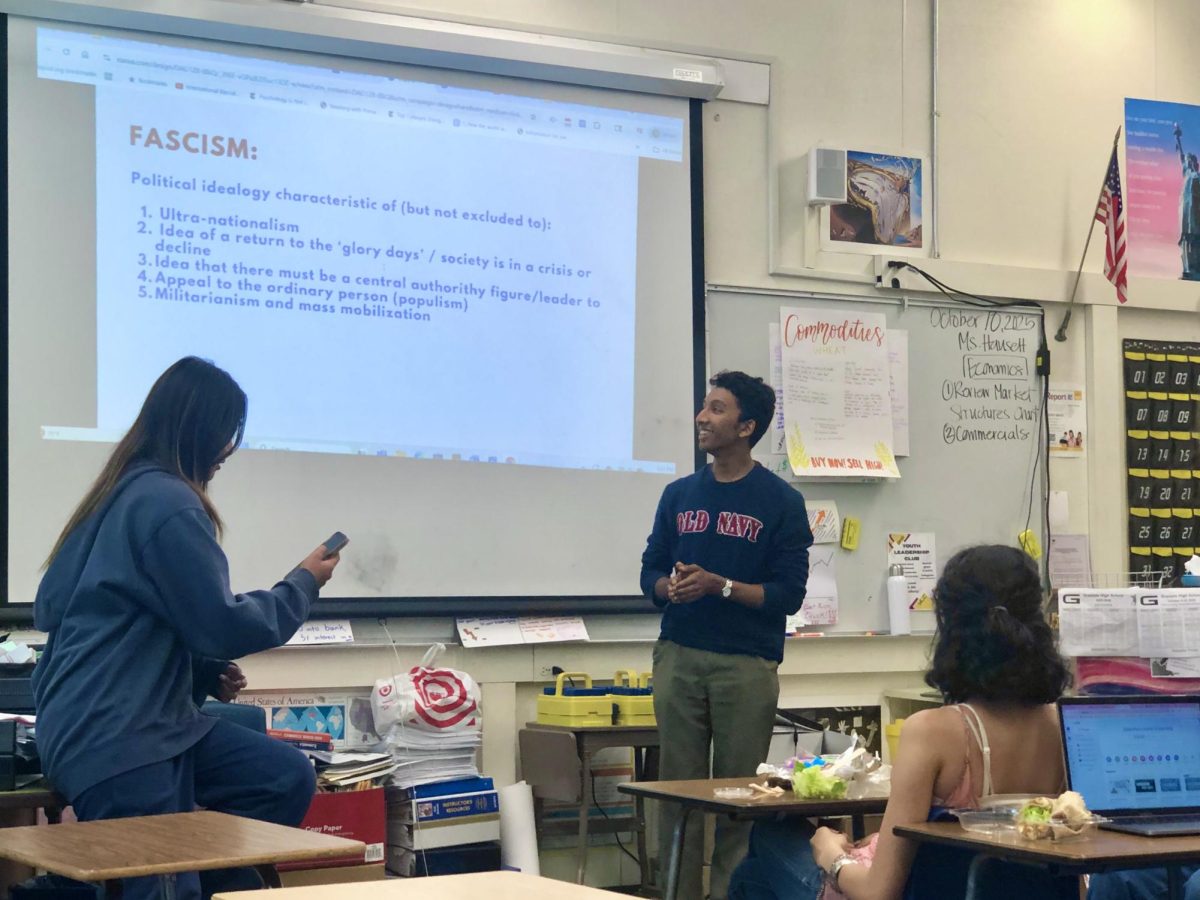In the Spring of 2026, the current sophomores will have an overwhelming amount of options for English classes they can select for their upcoming year at Granada. People in each of the different English classes, IB Language and Literature and AP Language and Composition, were interviewed about their respective classes to hopefully help narrow down the options.
One of the AP Lang teachers, Mrs. Watson, was asked about the kind of work students do in the course.
“There are four essays spread out throughout the course of the year. One is an argumentative template. One is a compare and contrast rhetorical analysis. One is a large research paper and then one is a final formal rhetorical analysis,” Watson said.
While the work in this course may seem challenging, to have the most success in this class, there are important qualities students must demonstrate.
“Hard work, determination and the ability to take and learn from feedback are the most important things,” Watson said.
Although most students have these traits, there are many struggles they will still face in this class.
“Time management of larger assignments and the ability to work independently,” are the greatest challenges in the course, Watson explains.
Watson further emphasizes the importance of time management in this course.
“If a student is keeping pace with their assignments, it should be 20 to 30 minutes of work a day, but I do know a lot of students put their work off until the last minute and then ended up doing 10 hours at once.”
However, if a student can become truly dedicated to being successful in this class, Watson describes how it can help students in the future.
“This class helps create a level of critical thinking and global awareness of how these concepts and skills apply to the world around you instead of just an individual course,” Watson says.
Overall, in Watson’s eyes there are a surplus of benefits to taking this course.
“I think this class gives students a great perspective on things that they don’t encounter in other English classes, because we leave behind literary analysis and we look more at how and why things work the way they do,” she says.
Not only are teacher perspectives significant in deciding which course is the most beneficial, but student perspectives as well.
Riya Anand (11), a student in AP Lang, describes how she decided to take the class to push and challenge herself in English.
“I know it’s a class that can really help improve my writing and prepare me for college. I also wanted to get better at expressing myself, especially in essays, since that’s something I’ll need for a lot of classes in the future,” Anand says.
She further explains her intentions by saying, “I want to do well in college and in a career where communication is important. Being able to write well and explain my ideas clearly will always be useful, so I feel like AP Lang helps me get ready for that.”
So far in the class, Anand describes how the content has been aligning with her academic goals.
“In class, we usually read passages, practice analyzing how the author writes, and then discuss it as a group. We also write essays, work on our writing structure, and sometimes practice multiple-choice questions to get ready for the AP test,” Anand says.
However, Anand anticipates the struggles she will face in the future with managing time while writing essays.
“It can be stressful to organize thoughts quickly and still make them sound good. To overcome this, I plan to practice timed writing often, take feedback from my teacher seriously, and not be afraid to make mistakes while I’m learning,” Anand says.
However, despite the challenges she might face and the work she will have to put in, Anand still recommends this class to future students to help them grow as writers.
“It makes you more confident when writing essays and teaches you skills you can use in other subjects too,” Anand said.
Meanwhile, one of the IB Language and Literature teachers, Mr. Mattern, was also asked various questions about the coursework.
When asked what background knowledge would be beneficial prior to this class, Mattern stated, “it is helpful if students have some sense of major world events and what’s going on…They [have] an open mind about, ‘Hey, I want to learn about what’s happening in different places because our curriculum covers different time periods in different continents.’ So just having an openness to that is really helpful.”
When describing the kind of coursework throughout the entire year and the benefits it brings, Mattern said, “[The class] helps with one’s ability to analyze a variety of what we call text types, from traditional novels and speeches and famous letters. But also, we analyze advertisements and websites and documentaries and all sorts of different texts.”
To emphasize the benefits of the course further, he highlights the growth of significant writing and interpretation skills by saying, “I think that’s applicable to a lot of different college courses…because we really expand our terminology as we study different types of different fields and different texts.”
Furthermore, Mattern describes the major assignments that will take place throughout the year.
“We have two days of testing and they’re just writing exercises and a couple of other assessments we have. There’s also a verbal component where students need to talk about a global issue in conjunction with a couple of texts that we’ve read in class. So there’s a lot of synthesized content and skills there.”
IB Lang is a very engaging class during the school day that teaches students extremely valuable skills. However, Mr. Mattern believes in a light workload when it comes to homework.
“I’m not a huge believer in homework. I think students have a lot of important activities outside of school, so I don’t give a lot of homework…most of the course content in school development takes place within the classrooms, so in terms of outside of class, I don’t think it’s really that heavy,” Mattern said.
Overall, Mattern recommends the class to future students by explaining the variety of knowledge you attain in the course.
“We get to study so many different time periods and different places and you know, literature from different people who maybe we haven’t heard from…So these are just really different perspectives that maybe we don’t typically get in a traditional English class,” Mattern says.
Alongside the teacher, a student taking IB Lang, Matteo Ramos (11), also vocalized his experiences in the class.
When asked why he decided to take the course, Ramos said, “I took IB Lang because I thought it would be a more fun, project based class than AP Lang.”
He further describes his decision by connecting it to his future desired major; business.
“I want to go into business and this class will teach me how to improve oral presentations skills needed for business,” Ramos said.
So far in the course, Ramos notes the positives, and he says, “I like the course a lot so far and I hope to gain an understanding of all the different mediums of expression.”
However, he knows that he will be faced with some struggles when it comes to doing work on time.
“I think the biggest challenge will be making sure I read assigned readings and I will overcome that by not procrastinating,” Ramos said.
For students considering taking this class in the future, Ramos states, “I would recommend this class to future students as it teaches a lot about oral presentation, essay writing skills, and more… This is a class for students who like a hands-on learning approach.”
Both IB Lit/Lang and AP Lang challenge students in ways they have never experienced before. AP Lang is focused on writing and analyzing why things work the way they do while IB Lang is focused on oral presentations and understanding different mediums of expression in a variety of types of literature. Both classes can benefit any student and help them succeed in the future.




























